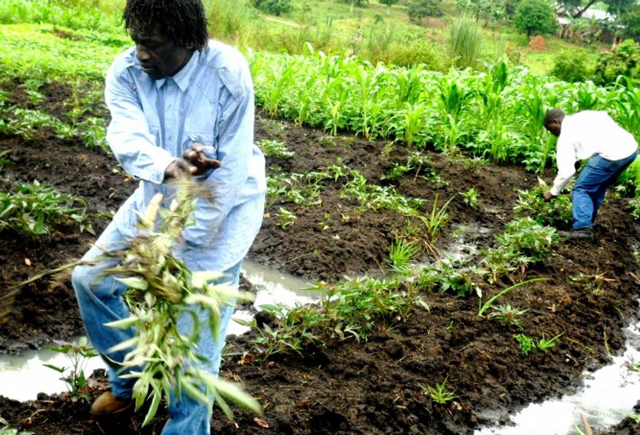
By Guest Writer
Opinion: World Wetlands Day is celebrated on January 2 annually. The commemoration raises awareness and increases people’s understanding of the critical importance of wetlands.
This year, the World Wetlands Day was celebrated under the theme ‘’Wetlands and Human Wellbeing”. Human beings have depended on wetlands for centuries, drawing sustenance, inspiration, and resilience from these important environments.
Many wetlands, particularly those near cities, have been polluted by human activities. For example, the River Rwizi in Mbarara district has been choked with plastic, which has led to river clogging.
In addition, according to research,an estimated 35% of the world’s wetlands have been lost since 1970. Around 87% of global wetland loss occurred in the 20th century, and the rate of loss continues.
Uganda had approximately 30,000 km2 of wetlands by 2000, but this area has since been reduced to around 22,500 km2, implying a 25% loss in the past two decades.
Despite the numerous benefits that humans receive from wetlands, every day, wetlands are damaged by human beings. Wetlands are being destroyed by unsustainable agricultural practices. Take the example of rice that is being grown in Rwela along the Masaka Road. This has led to flooding, which threatens the lives of people living in the same area.
Other activities include stream channelization, dam construction, discharge of industrial wastes, municipal sewage, and runoff in urban and agricultural areas.
Current trends in human settlement also pose a major threat to the conservation and wise use of wetlands in and near growing cities.
It is noted that, as cities grow and demand for land increases, the tendency is to encroach on wetlands, which are disappearing three times faster than forests. For example, the Nakivubo wetland, which is a vital component of Kampala’s drainage, has been highly affected by plastic pollution.
Therefore, this year’s celebration should be extended to communities because communities can lead efforts to check how wetlands are used in their local areas and participate in clearing the rubbish that is often dumped there, as well as unblocking the streams from which they get water.
Last but not least, as we celebrate this day, I call upon the government to put the following under consideration: the government should intervene and designate wetlands as protected areas, restore degraded wetlands, partner with local governments and civil society to create awareness about their importance, and encourage both citizens and investors to adopt cross-sectoral policies in education, housing, agriculture, and industry that protect wetlands and promote green economic growth.
The government should also support the environmental protection force within the Ministry of Water and Environment as well as the National Environment Management Authority (NEMA) with equipment to improve their wetland surveillance.
The author is Nuwamanya Mercy, a concerned citizen.
Disclaimer: As UG Reports Media LTD, we welcome any opinion from anyone if it’s constructive for the development of Uganda. All the expressions and opinions in this write-up are not those of UG Reports Media Ltd. but of the author of the article.
Would you like to share your opinion with us? Please send it to this email: theugreports@gmail.com.





